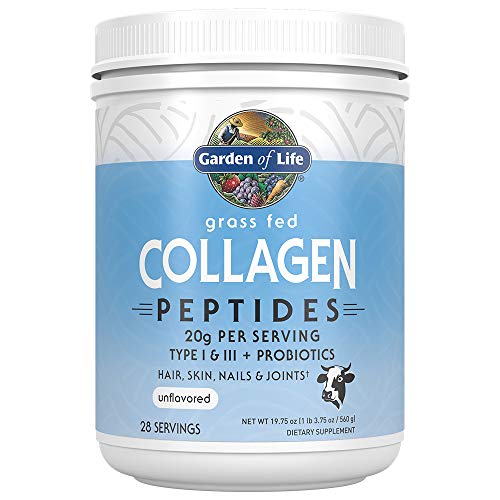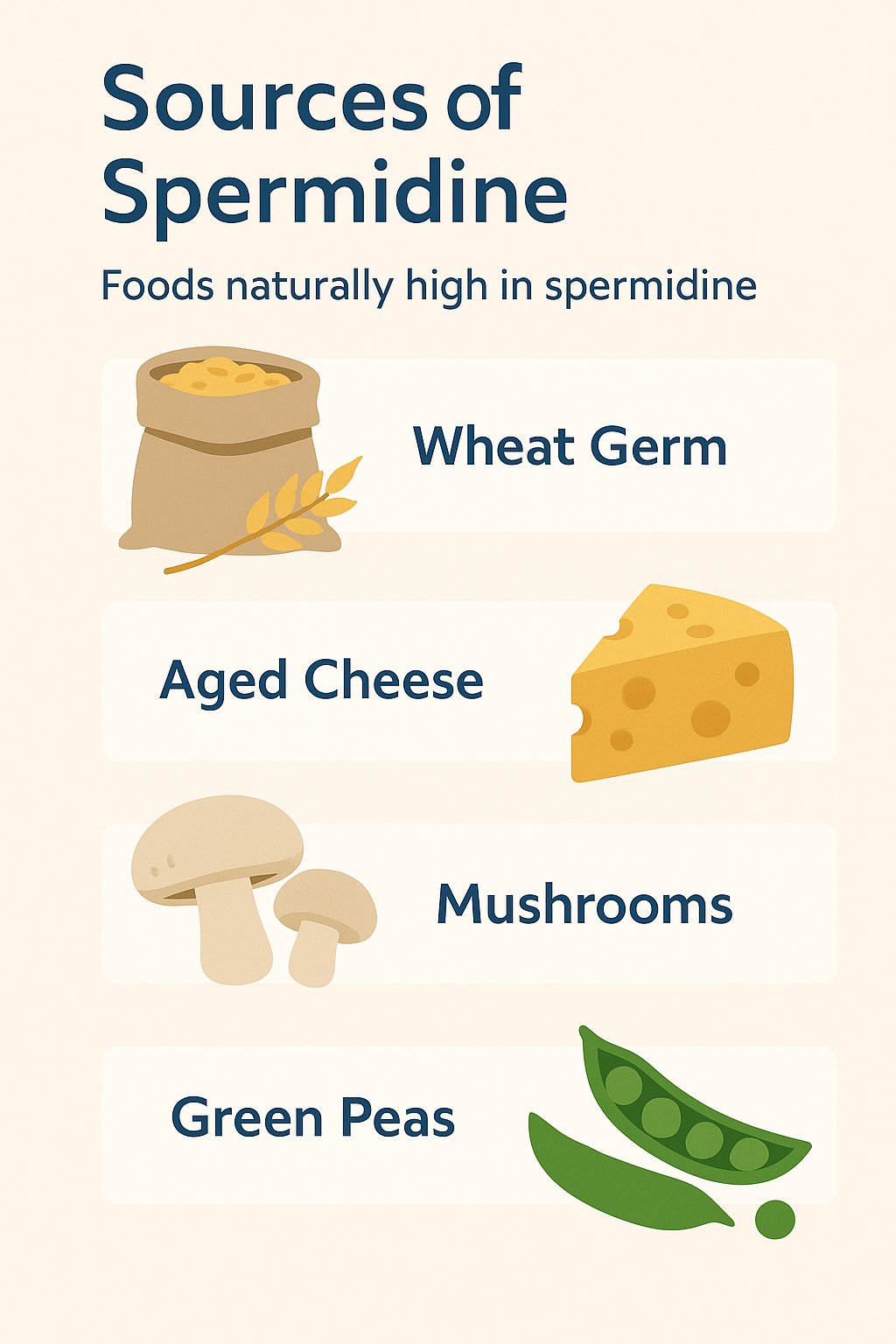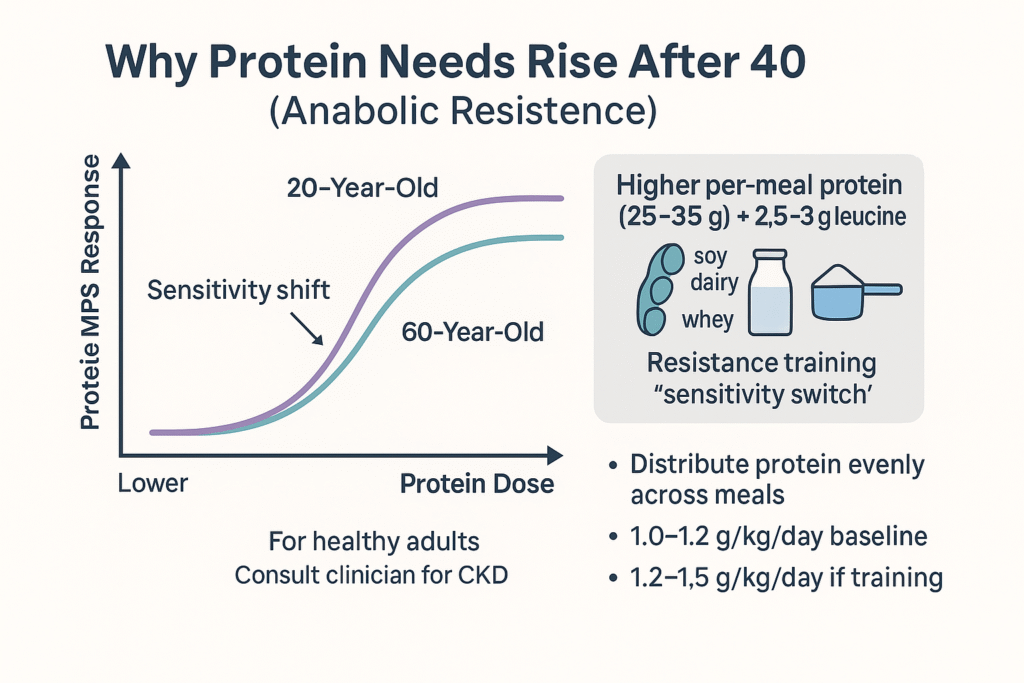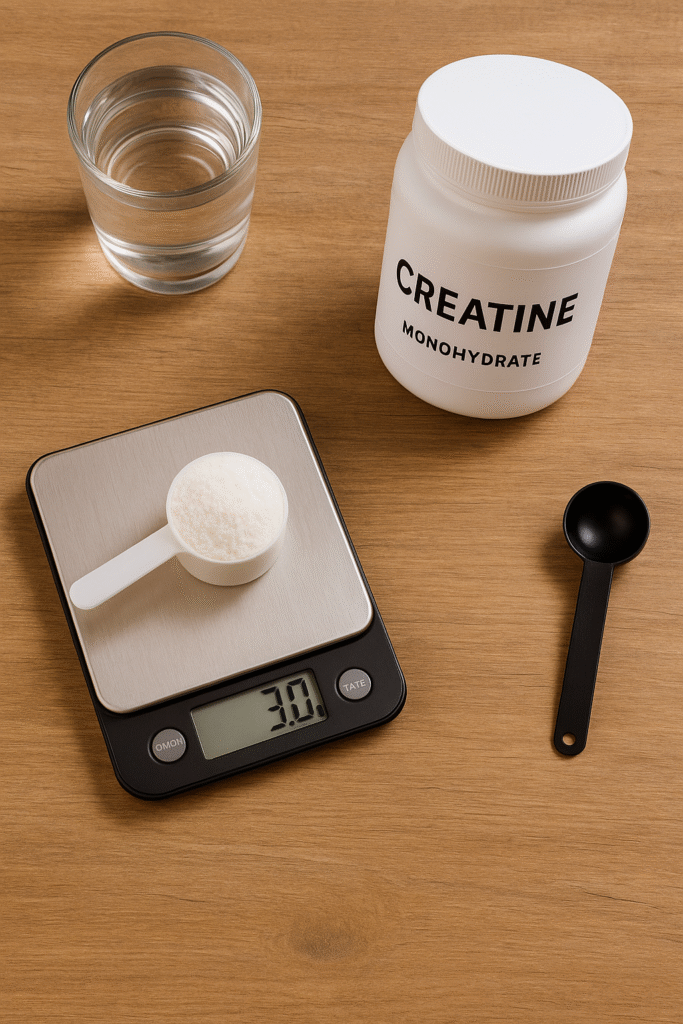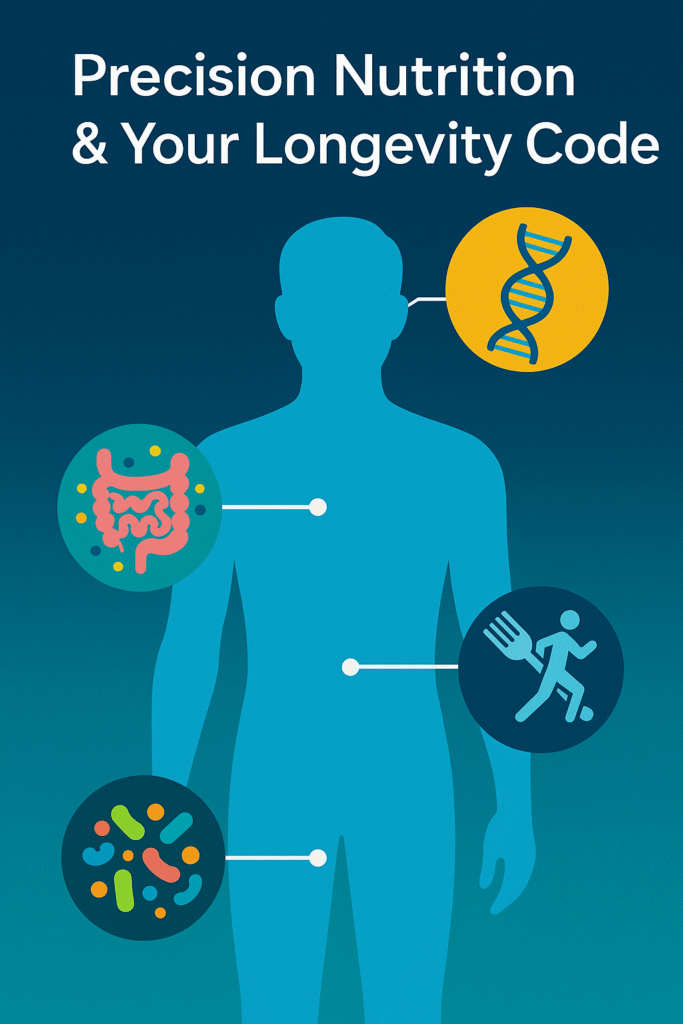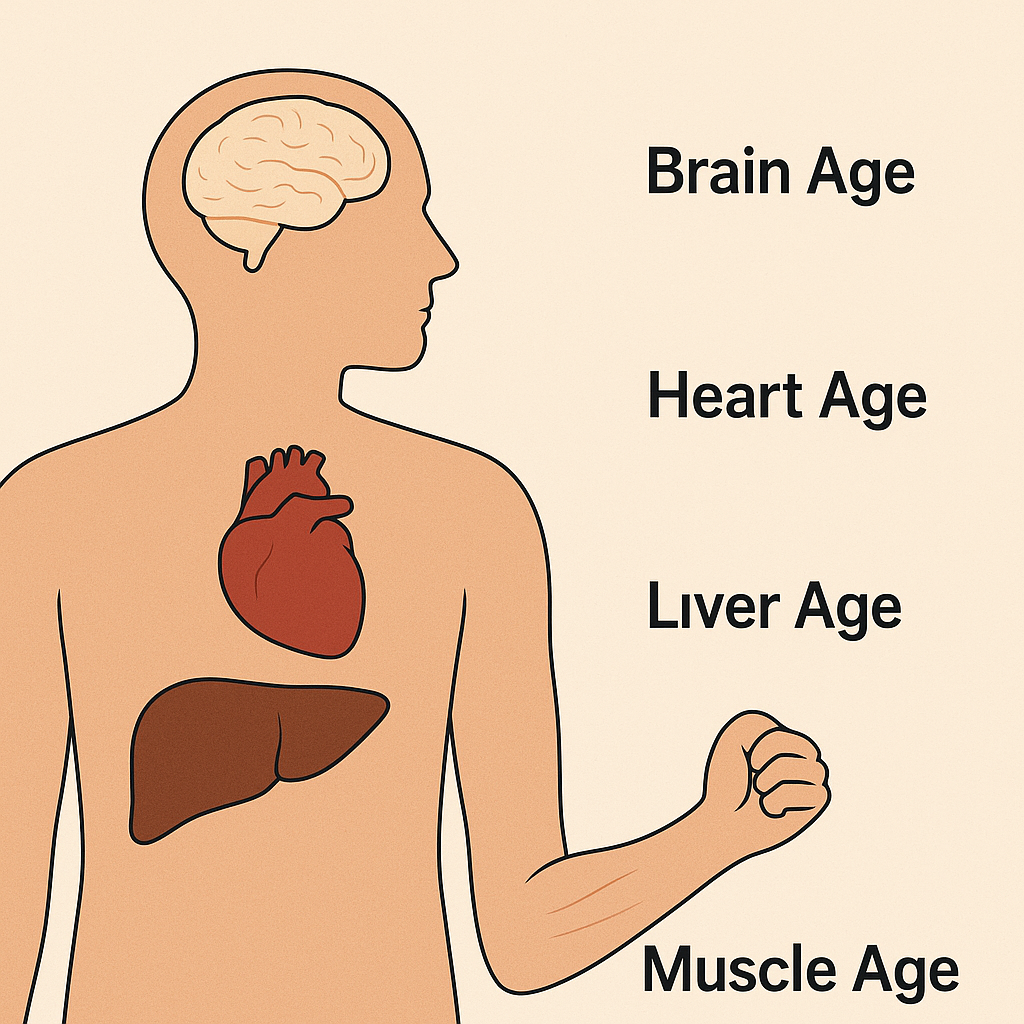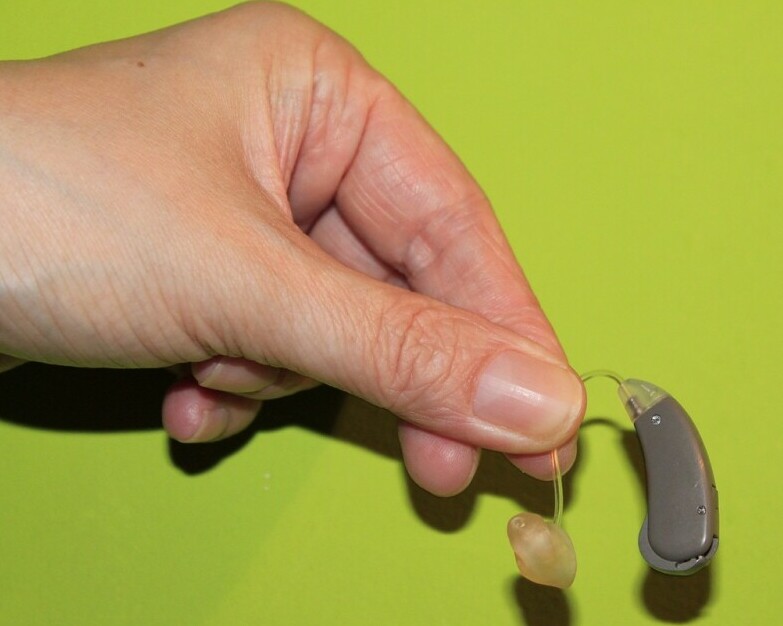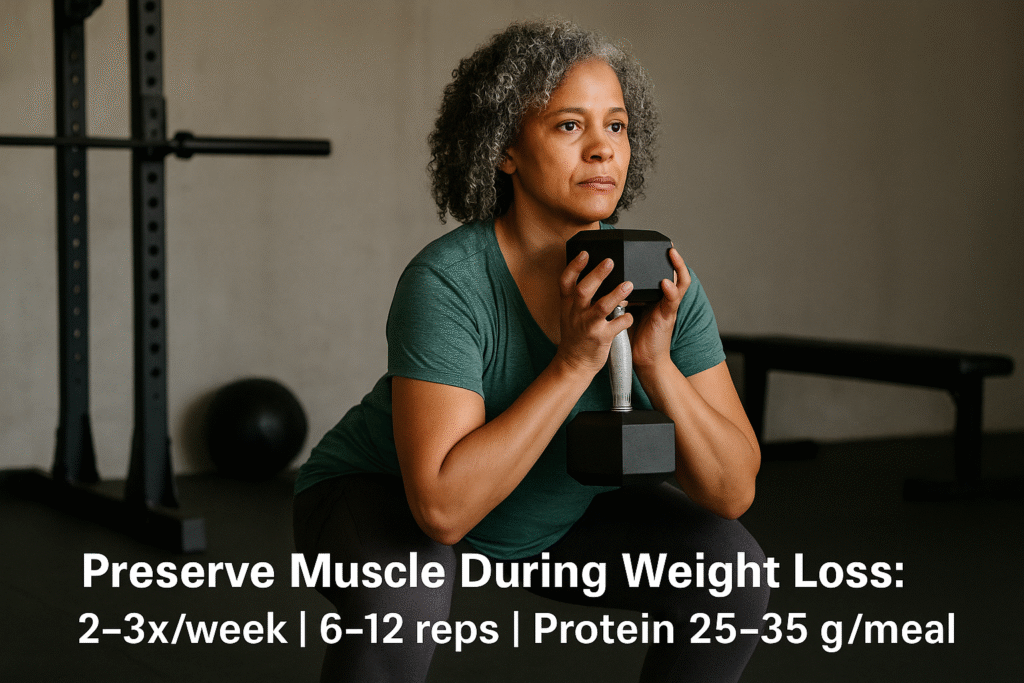As we age, various changes in our body can be attributed to the decline in collagen production. While collagen is commonly associated with youthful skin, its role in overall health goes far deeper than aesthetics. From joint health and bone strength to supporting the digestive system and even heart health, collagen is integral to maintaining the structural integrity of our body. Understanding its broader importance and discovering effective ways to preserve collagen levels are key to aging healthily and staying active.
Understanding Collagen: More Than Skin Deep
Collagen is the most abundant protein in the human body, accounting for approximately 30% of total protein content. It acts as the primary building block for various tissues, including skin, tendons, ligaments, and bones. This critical protein provides structural support, elasticity, and strength to connective tissues, making it essential for maintaining the body’s overall integrity. Without sufficient collagen, your body’s ability to heal and maintain its physical structure becomes compromised, leading to issues such as wrinkles, joint pain, and weakened bones. In essence, collagen can be thought of as the scaffolding that supports the body.
Different Types of Collagen
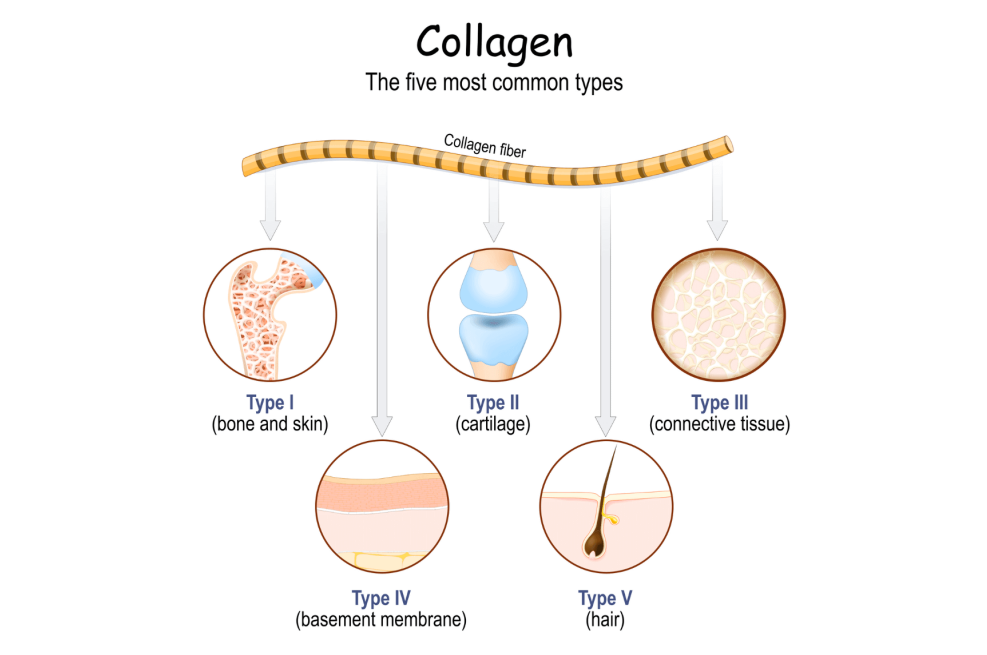
Though collagen is often talked about in a singular sense, it actually consists of various types, with Type I, II, and IIIbeing the most prevalent. Each type serves different roles in the body:
- Type I: This is the most abundant collagen, found primarily in the skin, bones, tendons, and ligaments. It plays a critical role in maintaining firmness and elasticity in the skin and is essential for bone strength.
- Type II: Mostly found in cartilage, Type II collagen is crucial for joint health, offering cushioning and support to the bones.
- Type III: Often working alongside Type I, Type III collagen is found in the skin, muscles, and blood vessels, playing an important role in maintaining the integrity of internal organs and promoting muscle recovery.
Each of these collagen types provides specific benefits to different areas of the body, making it essential to maintain balanced collagen production for overall health.
The Aging Process: How Collagen Production Changes Over Time
Collagen Production Over Life Stages
Collagen production starts high in our early years but begins to decline as early as our mid-20s, with the body producing approximately 1% less collagen each year. By the time we reach our 40s and beyond, the decline becomes more pronounced, often leading to visible signs such as wrinkles and less visibly noticeable ones like joint stiffness and bone weakness. This steady reduction is a natural part of aging, but understanding when it begins can help individuals take proactive measures earlier on to slow down this process and maintain a youthful and healthy body.
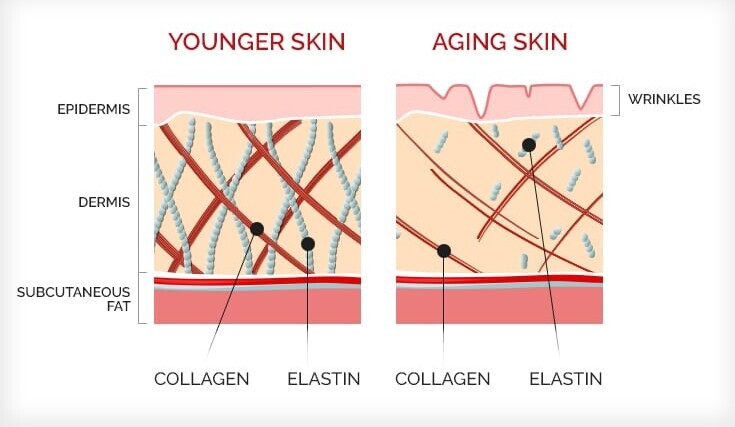
Factors That Affect Collagen Levels
While aging itself reduces collagen production, several external and lifestyle factors can accelerate its decline:
- UV exposure: Excessive sun exposure is one of the leading causes of collagen breakdown. The UV rays damage the collagen fibers in the skin, leading to premature aging and wrinkles.
- Smoking: Chemicals in cigarettes degrade collagen and elastin, which are responsible for maintaining skin elasticity and structure.
- Diet: A diet lacking in protein, vitamin C, and other essential nutrients can hamper the body’s ability to produce and maintain healthy collagen levels.
- Stress: Chronic stress raises cortisol levels, which, in turn, increases collagen breakdown. Over time, this can lead to faster aging and weakened tissues.
Symptoms of Declining Collagen Levels
The symptoms of collagen depletion are often most evident in the skin, with fine lines, wrinkles, sagging, and loss of elasticity being some of the earliest signs. Internally, the impacts are more severe, as joint pain, weakened cartilage, and reduced bone density often result from low collagen levels. In addition, you may experience a slower muscle recoveryand a general reduction in physical strength, making it harder to stay active and healthy.
Beyond Beauty: The Surprising Health Benefits of Collagen
While collagen is typically marketed for its skin benefits, its role in maintaining overall health should not be overlooked. Collagen is a key component of not only the skin but also the bones, joints, muscles, gut lining, and even the arteries.
Collagen for Joint and Bone Health
Type II collagen is primarily found in cartilage, which acts as a cushion between your bones, allowing for smooth joint movement. As collagen production declines, cartilage becomes thinner and less flexible, leading to conditions like osteoarthritis, joint pain, and stiffness. Maintaining collagen levels can help protect and repair cartilage, promoting joint flexibility and reducing discomfort. Additionally, collagen is a critical component of bone structure, helping to prevent bone density loss as we age, which is particularly important for preventing fractures and conditions like osteoporosis.
Product Recommendation:
Surebounty Collagen Peptides Powder (4.4-star rating)
Product Description: This bioavailable collagen powder is derived from grass-fed, pasture-raised cows and is an excellent source of Type I and Type III collagen. It easily dissolves in hot or cold liquids, making it perfect for daily consumption in your morning coffee or smoothie.
Benefits: Supports joint flexibility, promotes bone strength, and enhances skin elasticity. Its versatility and easy integration into any diet make it a top choice for overall health maintenance.
Collagen and Gut Health
Emerging research has shown that collagen can play a vital role in gut health. The amino acids found in collagen, particularly glycine and glutamine, help maintain the integrity of the gut lining. This can be particularly beneficial for individuals suffering from conditions like leaky gut syndrome, where the gut lining becomes permeable, allowing toxins and undigested food particles to enter the bloodstream. By strengthening the gut lining, collagen aids in improving digestion and reducing inflammation.
Collagen for Heart Health
Collagen is also essential for heart health, as it provides structure to the arteries and blood vessels. Studies have shown that collagen helps prevent arterial stiffening, which is a precursor to serious cardiovascular conditions like atherosclerosis (the hardening of the arteries). By maintaining flexibility in the arteries, collagen helps reduce the risk of heart attacks and strokes, making it an important part of cardiovascular care.
Product Recommendation:
Ancient Nutrition Multi-Collagen Protein Powder (4.5-star rating)
Product Description: A blend of five types of collagen sourced from eggshells, fish, chicken, and beef, this collagen powder supports a range of functions, including gut health, heart health, and joint function.
Benefits: Promotes arterial flexibility, supports gut integrity, and reduces inflammation, making it a comprehensive solution for overall health and well-being.
Collagen for Muscle Recovery
For those who lead an active lifestyle, collagen is particularly beneficial for muscle recovery and maintaining lean muscle mass. Collagen contains proline and glycine, two amino acids that are crucial for the repair of muscle tissue. Regular collagen intake can help speed up recovery times, reduce soreness after workouts, and maintain muscle strength—a critical factor for aging adults looking to stay active and prevent muscle atrophy.
Product Recommendation:
Sports Research Collagen Peptides (4.7-star rating)
Product Description: Sourced from grass-fed, pasture-raised cattle, this collagen supplement contains Type I and Type III collagen and is highly bioavailable.
Benefits: Supports muscle recovery, promotes lean muscle growth, and enhances joint elasticity, making it ideal for individuals who exercise regularly or aim to maintain muscle strength as they age.
Debunking Myths: What Science Says About Collagen Supplements
Despite collagen’s rising popularity, there are still misconceptions about its effectiveness. However, recent studies offer strong support for its benefits.
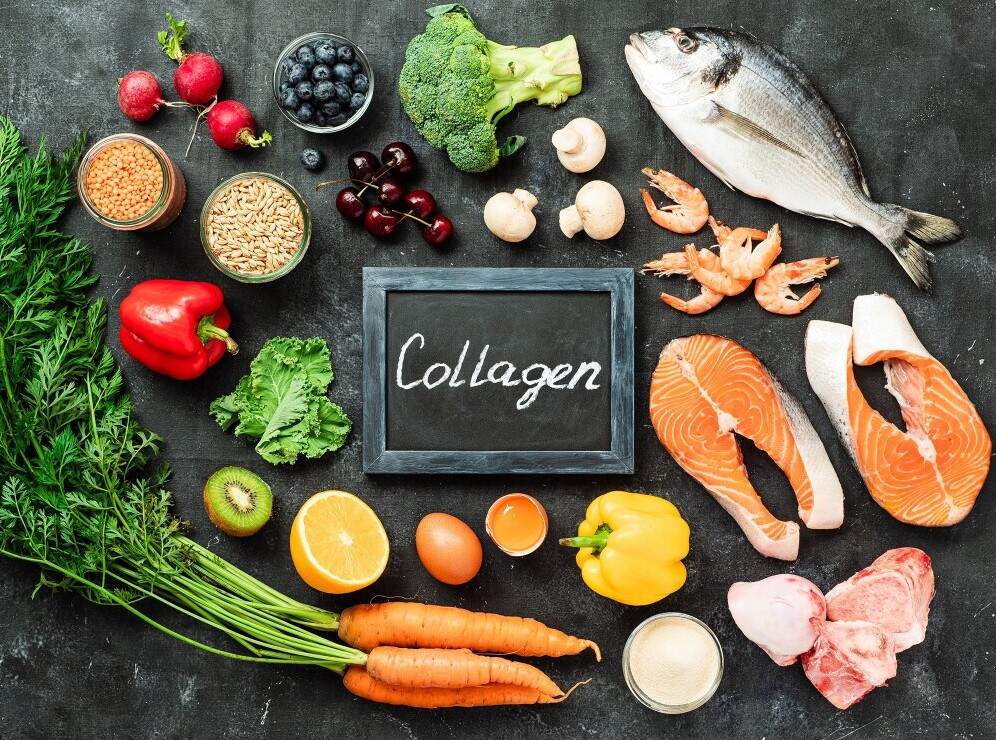
The Efficacy of Collagen Supplements
Contrary to the myth that collagen supplements are ineffective due to digestion, clinical studies have proven that the amino acids from collagen supplements are readily absorbed and utilized by the body. For example, a study published in the journal Nutrients demonstrated significant improvements in both joint pain and skin hydration among participants who regularly consumed collagen supplements. Other studies have supported its benefits for muscle recovery and gut health.
Common Misconceptions About Collagen
A prevalent myth is that collagen supplements won’t work because the collagen is broken down during digestion. While it’s true that collagen breaks down into amino acids, these amino acids are specifically used by the body to repair collagen-rich tissues like skin, joints, and muscles. Thus, while it may not directly “add collagen” to the body, collagen supplementation provides the necessary building blocks for the body to repair and regenerate.
Product Recommendation:
Garden of Life Grass Fed Collagen Peptides (4.6-star rating)
Product Description: This clean, non-GMO collagen supplement provides 20g of collagen per serving and is sourced from grass-fed cattle.
Benefits: Helps maintain joint flexibility, supports gut health, and promotes skin elasticity, making it a versatile option for aging adults looking for a high-quality collagen supplement.
Incorporating Collagen Into Daily Life: Practical Tips and Advice
Dietary Sources of Natural Collagen
To naturally boost collagen production, your diet should include bone broth, chicken skin, fish, and egg whites. Additionally, vitamin C-rich foods like oranges, kiwis, and bell peppers are essential because they help synthesize collagen in the body. These foods provide the necessary components to stimulate collagen production naturally, ensuring you maintain healthy levels throughout your life.
Lifestyle Changes to Promote Collagen Synthesis
Small lifestyle changes can significantly impact collagen production. Protecting your skin from excessive sun exposure, adopting a balanced diet, staying hydrated, and performing resistance training can all promote collagen synthesis. Resistance training, in particular, helps stimulate collagen production in muscles and tendons, promoting stronger tissues as you age.
Product Recommendation:
NeoCell Super Collagen Peptides (4.5-star rating)
Product Description: A bioavailable collagen supplement made from hydrolyzed collagen for maximum absorption.
Benefits: Enhances skin elasticity, supports joint flexibility, and promotes bone health, making it a great addition to daily routines for individuals seeking a comprehensive approach to aging.
Precautions When Using Collagen Products
Although collagen supplements are generally considered safe, some individuals may experience mild digestive discomfort when taking them. It is crucial to choose high-quality collagen products from reputable sources to ensure you are getting a pure product, free from unnecessary additives or contaminants.
Conclusion
Collagen is more than just a beauty enhancer—it is a key player in maintaining joint health, bone density, gut integrity, and even heart function as we age. Understanding the deeper roles collagen plays in the body can help you make informed decisions about your health. By incorporating collagen-rich foods, adopting a healthy lifestyle, and using high-quality collagen supplements, you can reduce the signs of aging and improve your overall vitality.
Whether you’re looking to maintain skin elasticity, reduce joint pain, or support muscle recovery, collagen is an essential building block that helps your body stay resilient. Take proactive steps to protect and enhance your collagen levels, and embrace the benefits of healthy aging today!
Disclaimer: All the content on this site is for informational purposes only, does not constitute medical advice, and does not establish any kind of patient-client relationship by your use of this website. I am not a health care professional. The information, including but not limited to text, graphics, images and other material contained on this website are for informational purposes only. No material on this site is intended to be a substitute for professional medical advice, diagnosis, or treatment. Before starting any new regimen, supplements, diet, or program, it is crucial to consult with a healthcare professional to ensure it is safe and suitable for your individual health needs and circumstances. Here’s a little transparency: This website also contains affiliate links. This means if you click and make a purchase, we may receive a small commission. Don’t worry, there’s no extra cost to you. It’s a simple way you can support our mission to bring you quality content.





